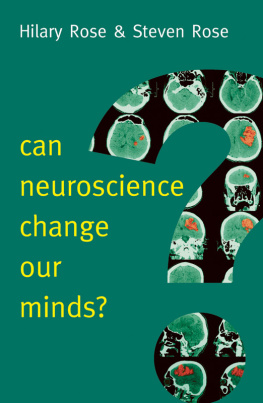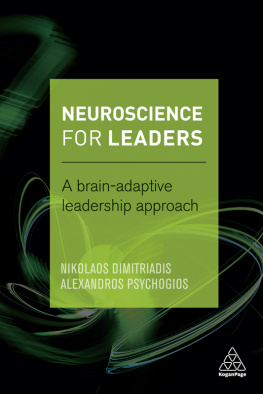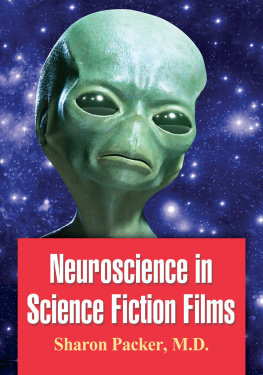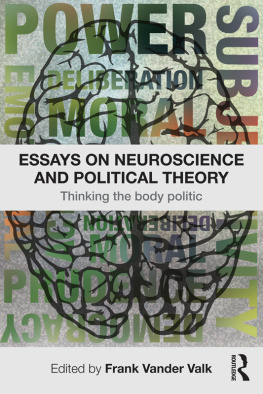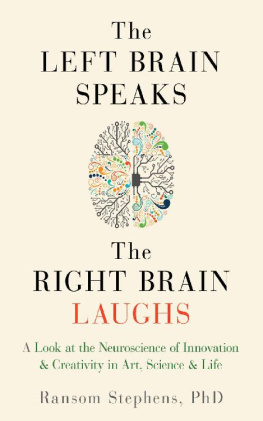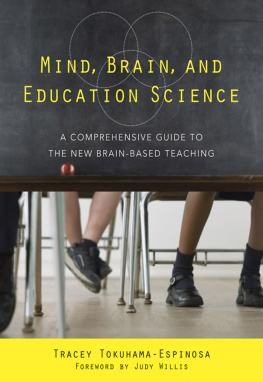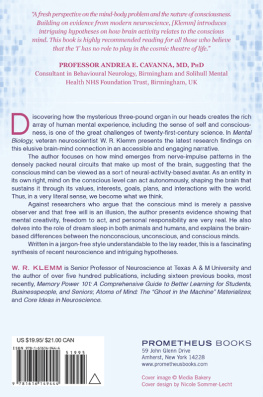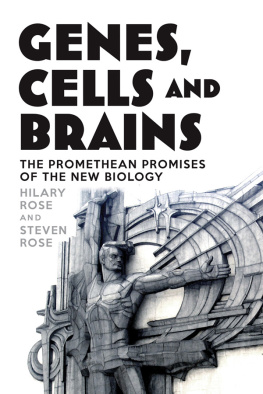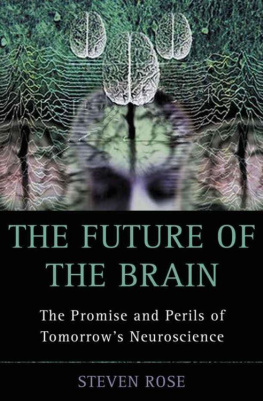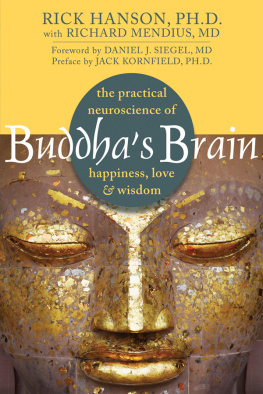
New Human Frontiers series
- Harry Collins, Are We All Scientific Experts Now?
- Everett Carl Dolman, Can Science End War?
- Mike Hulme, Can Science Fix Climate Change?
- Margaret Lock & Gisli Palsson, Can Science Resolve the Nature/Nurture Debate?
- Hugh Pennington, Have Bacteria Won?
- Hilary Rose & Steven Rose, Can Neuroscience Change Our Minds?
Copyright page
Copyright Hilary Rose and Steven Rose 2016
The right of Hilary Rose and Steven Rose to be identified as Authors of this Work has been asserted in accordance with the UK Copyright, Designs and Patents Act 1988.
First published in 2016 by Polity Press
Polity Press
65 Bridge Street
Cambridge CB2 1UR, UK
Polity Press
350 Main Street
Malden, MA 02148, USA
All rights reserved. Except for the quotation of short passages for the purpose of criticism and review, no part of this publication may be reproduced, stored in a retrieval system, or transmitted, in any form or by any means, electronic, mechanical, photocopying, recording or otherwise, without the prior permission of the publisher.
ISBN-13: 978-0-7456-8931-9
ISBN-13: 978-0-7456-8932-6 (pb)
A catalogue record for this book is available from the British Library.
Library of Congress Cataloging-in-Publication Data
Names: Rose, Hilary, 1935- author. | Rose, Steven P. R. (Steven Peter Russell), 1938-author.
Title: Can neuroscience change our minds? / Hilary Rose, Steven Rose.
Description: Cambridge, UK ; Malden, MA : Polity, 2016. | Includes bibliographical references and index.
Identifiers: LCCN 2015046128 (print) | LCCN 2016003260 (ebook) | ISBN 9780745689319 (hbk) | ISBN 9780745689326 (pbk) | ISBN 9780745689340 (Mobi) | ISBN 9780745689357 (Epub)
Subjects: LCSH: Neurosciences. | Brain.
Classification: LCC QP356 .R57 2016 (print) | LCC QP356 (ebook) | DDC 612.8dc23
LC record available at http://lccn.loc.gov/2015046128
Typeset in 11 on 15 pt AGaramond
by Toppan Best-set Premedia Limited
Printed and bound in Great Britain by Clays Ltd, St. Ives PLC
The publisher has used its best endeavours to ensure that the URLs for external websites referred to in this book are correct and active at the time of going to press. However, the publisher has no responsibility for the websites and can make no guarantee that a site will remain live or that the content is or will remain appropriate.
Every effort has been made to trace all copyright holders, but if any have been inadvertently overlooked the publisher will be pleased to include any necessary credits in any subsequent reprint or edition.
For further information on Polity, visit our website: politybooks.com
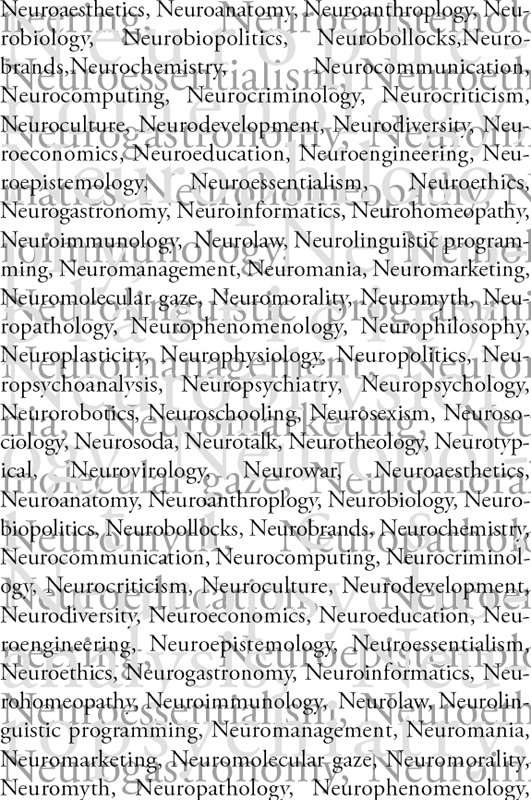
acknowledgements
We wish to acknowledge the generous help our readers, Simon Gibbs, Maureen McNeil, Helen Roberts and Vince Walsh, have given us. That they come from the very different but very relevant disciplines of educational psychology, women's and cultural studies, medical sociology and human neuroscience has critically nourished our intellectual and political project of bringing the claims of neuroeducation into public scrutiny and debate. We have enjoyed debating the neurosciences and the theoretical frames through which they can be viewed with Steven's younger brother, the sociologist Nikolas Rose especially over good food and wine. At Polity, Jonathan Skerrett, our perceptive editor, has been a pleasure to work with, as have indeed his colleagues. Apologies to those whose work we have drawn on but in this short book have had no space to acknowledge.
introduction
The proliferating prefix
How to understand the ever-proliferating neuro-prefix, attached to everything from new academic disciplines neuroeconomics, neuromarketing, neuroethics, neuroaesthetics, neuropsychoanalysis to the marketing of neuro-eticals such as the soda drinks NeuroBliss, NeuroPassion etc.? Neuro occupies more and more space within mainstream science; neuro research papers dominate the leading journals, Science and Nature. Specialist journals proliferate. Neuro books, from the academic to the popular, stream from the presses. One publishing house alone, the venerable Oxford University Press, has no less than 1,200 neuro titles in its list. They range from handbooks on the wiring patterns of the brain through philosophical reflections on the relations between brain, mind and consciousness, to self-help texts on brain optimization. Unsurprisingly, the press has not been left out of this neuro-feeding frenzy; one research study mapped the steady rise of newspaper articles on the brain in the UK's top three broadsheets and the top three tabloids between 2000 and 2010. The flow only slackened in 2008, when that year's near-cataclysmic banking crash briefly drove neuro from the pages. Brain optimization and brain pathologies, ranging from eating disorders to dementia, drew most of the journalists' interest. Neuro has gone into orbit and neuromania is all too often the order of the day.
Can neuroscience really change our minds? As a neuroscientist and a sociologist who share the view that neuroscience is dramatically increasing our understanding of the brain and also that science and society shape each other that is, they are co-produced The imaginary that they depicted left those outside the community of molecular biology as passive, waiting rescue. Despite the ideology of reductionism they share, the neurosciences' imaginary is radically different, claiming that their knowledge can empower us to remake our brains, and hence our minds and our very selves. Personal effort, guided by the neurosciences, can overcome the injuries of poverty and inequality. Plasticity, a property of the brain central to neuroscientific thinking for half a century, has become a quasi-magical term within public-policy discourse, offering an entirely new solution to problems of child development and poor educational performance, and heralded as the new elixir by the self-help manuals.
So is the answer to the question in the title of this book a simple yes? As we will show in the chapters that follow, things aren't quite that simple.
For neuroscientists, the brain is the last biological frontier. It is seen as the repository of learning, thinking, deciding, acting, feeling angry, afraid, loving, remembering, forgetting, even consciousness itself. Well funded, with 6 billion for just two Euro-American mega-projects, bolstered by an astonishing array of new technologies from the atomic to the systemic, and with research papers tumbling out in a seemingly inexhaustible torrent, it was almost inevitable that for most neuroscientists all doubts would vanish: the mind is the brain, the brain the mind. With this, the philosophical debate of centuries is simply bypassed.
Not everyone goes along with this, although an increasing corporatism in universities is hostile to dissent, and controversial ideas that might stir thought are unwelcome. With research money in short supply, only a handful of neuroscientists are willing to stick their heads above the parapet. More audible are the grumbles from psychiatry, although individuals who have vigorously entered public debate have encountered problems. British psychiatrist David Healy found his appointment to a senior position in a Canadian university blocked, following pressure from a pharmaceutical company, the efficacy of whose drug he had questioned. Philosophers are freer from the constraints of needing substantial research grants, and many, John Searle, Raymond Tallis and Mary Midgley among them, have mounted a vigorous public defence of the mind.
Next page
